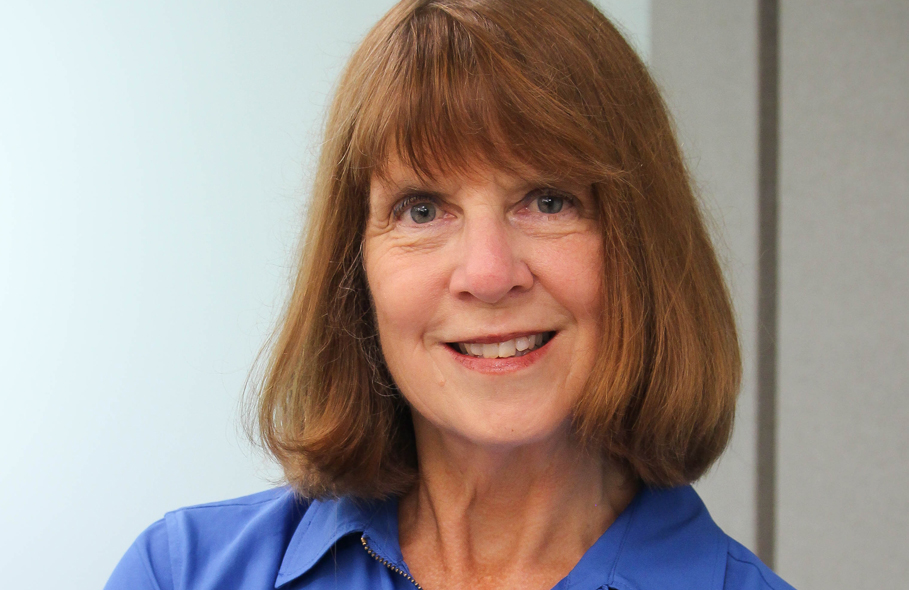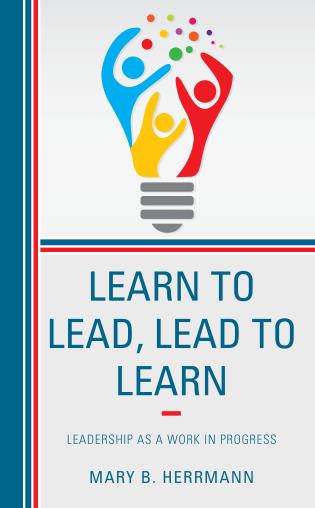The School Leader's Journey: Leadership as a Work in Progress
by Tom Hanlon / Jan 7, 2020

Mary Herrmann’s new book on leadership helps leaders consider the issues that are critical to managing schools in today’s politically-charged climate.
Leaders evolve—and so do books on leadership.
The first statement is Mary Herrmann’s credo. The second is her experience in writing her recently-published book Learn to Lead, Lead to Learn: Leadership as a Work in Progress.
Herrmann, a clinical associate professor in Education Policy, Organization and Leadership at the University of Illinois, was asked by a publisher to write a book based on an article she wrote for AASA, the School Superintendents Association.
“I began playing with the idea and, over time, it evolved into something different,” says Herrmann, who has been with the College of Education since 2012.
And that, says Herrmann, is what the best leaders do as well.
“You don’t ‘arrive’ when you gain a position,” she says. “You’re just continuing your journey, and that journey continues all the time. There’s a sentence near the beginning of my book that reads ‘Once confident in how much we knew, we are now certain of how little we know.’ Leaders are constantly learning. Hopefully that learning becomes deeper, but you have to be intellectually humble about that.”
Sixteen Attributes of a Leader
Intellectual humility is one of 16 leadership growth and organizational growth attributes that Herrmann explores in her book. “They’re not inclusive by any means, but they were the ideas that kept emerging in conversations I would have with colleagues and others who have had multiple leadership roles in school districts, as well as the research I was doing,” she says. “So, those attributes began to resonate with me a lot.”
 Humility is an important attribute, Herrmann says, “because leadership is humbling. There’s so much you need to manage and navigate. There are never easy answers to anything.”
Humility is an important attribute, Herrmann says, “because leadership is humbling. There’s so much you need to manage and navigate. There are never easy answers to anything.”
The reality that there are no easy answers clashes with a community’s expectations that school leaders have immediate answers and solutions. “That 24/7 access through social media has played a huge role in shaping the work,” she says. “Everyone is expecting you to be the expert, to answer questions definitively, and that is counter to what we know about how to lead improvement and how we really learn.”
Leading Through Inquiry
Rather than pronounce immediate solutions, Herrmann says, the best leaders lead through inquiry. “They help ask the questions that move the organization forward,” she explains.
Self-mastery, she adds, plays a significant role here. “When you understand yourself, your beliefs, when you know how you think about things and what your biases and cultural understandings are, then you can frame an issue in a context of understanding others, of knowing what motivates others and how you can work with others and build capacity within your organization.”
That self-mastery is also critical in working with board members who often come with their own agendas. “You have to figure out how you can lead change that’s realistic and that actually works,” she says. “How do you find the leverage to make those kinds of changes?”
Herrmann speaks from personal experience, as she has 22 years of leading as either a school principal or a superintendent.
The Increasing Complexity of Leadership
“When you’re grappling with a problem as a superintendent, you’re going back to revisit your core values, determining what’s worth fighting for, and how to frame things and summon the courage to move forward,” she says. “You do that at all levels, but the complexity and problems become a bit more intense as you move into larger roles.”
For example, she says, education leaders face challenging inequity problems, and must be able to listen to more than just the privileged who have the most power. “A leader has to be able to say we have to look at things this way, we have to provide more resources in this direction, and that can be really difficult,” she says. “It’s the moral responsibility of a leader to do this, but it’s politically difficult, and it takes a toll. The challenge of trying to serve all students well is not new, but in a world that’s far more transparent, there’s a lot more noise out there and it’s more difficult to navigate.”
The Mindset of a Leader
Learn to Lead, Lead to Learn is based on the premise that learning is essential to both a leader’s and an organization’s ability to adapt and innovate. That’s where the subtitle, Leadership as a Work in Progress, comes into play.
“The knowledge that we’re really not experts, we’re always growing, has to be a significant part of the mindset of a leader,” Herrmann says. The 16 attributes she covers in her book help leaders develop their capacity to adapt and transform, nurturing and sustaining a thriving, learning environment for both individuals and the organization.
While the leadership principles are relevant to leaders in all fields, she says, she wrote the book specifically for education leaders. “It’s not a ‘how-to’ book; it’s more of a ‘think through these things as a leader’ book,” she notes.
Other Works on Leadership
This wasn’t Herrmann’s first venture as an author. In 2017, her book Decide to Lead: Building Capacity and Leveraging Change through Decision-Making came out.
“Decide to Lead is more of an academic book in that it references different models of decision-making,” she says. “The work of leadership is very much about making decisions and being held accountable for them. With this new book, I suggest that leaders need to recognize that the core of their work has to be about learning—for themselves, for the people they’re working to develop, and for the organization itself. Decision-making is the nature of the work and learning is the core of the work.”
Herrmann is currently working on another article for AASA on how superintendents can best navigate their relationship with school boards. “In a system that’s not really conducive to learning as a collective body, how do you instill learning into the relationship?” she says. “How do you move forward and adapt and challenge the status quo practices that are unjust?”
Will the article eventually turn into a book, as her last article did?
Herrmann chuckles. “I’m not looking to write more books. It’s a lot of work! I just like to play with ideas. We’ll see how the article evolves.”